Document Author
Year Published
- 2015 (5) Apply 2015 filter
- 2007 (2) Apply 2007 filter
- 2013 (2) Apply 2013 filter
- 1995 (1) Apply 1995 filter
- 2003 (1) Apply 2003 filter
- 2004 (1) Apply 2004 filter
- 2006 (1) Apply 2006 filter
- 2007; 2019 (1) Apply 2007; 2019 filter
- 2009 (1) Apply 2009 filter
- 2011 (1) Apply 2011 filter
- 2012 (1) Apply 2012 filter
- 2014 (1) Apply 2014 filter
- 2016 (1) Apply 2016 filter
- 2018 (1) Apply 2018 filter
Topic
- (-) Remove Judicial Ethics filter Judicial Ethics
- Ethics Education (20) Apply Ethics Education filter
- 100% Access to Justice (15) Apply 100% Access to Justice filter
- Judges (13) Apply Judges filter
- Articles & SRLN Briefs (5) Apply Articles & SRLN Briefs filter
- Self-Help Centers (5) Apply Self-Help Centers filter
- Trial Court Self-Help (5) Apply Trial Court Self-Help filter
- Presentations (4) Apply Presentations filter
- Forms (3) Apply Forms filter
- Forms (3) Apply Forms filter
- Simplification (3) Apply Simplification filter
- Strategic Planning (3) Apply Strategic Planning filter
- Best Practices for Self-Help Centers (2) Apply Best Practices for Self-Help Centers filter
- Courses & Trainings (2) Apply Courses & Trainings filter
- LEP and Access (2) Apply LEP and Access filter
- Plain Language & LEP (2) Apply Plain Language & LEP filter
- Reports, Evaluations, Best Practices, Surveys (2) Apply Reports, Evaluations, Best Practices, Surveys filter
- Research (2) Apply Research filter
- Trainer of the Trainer Materials / Curricula (2) Apply Trainer of the Trainer Materials / Curricula filter
- Triage (2) Apply Triage filter
- Unbundling (2) Apply Unbundling filter
- Automated Forms & E-Filing (1) Apply Automated Forms & E-Filing filter
- Best Practices (1) Apply Best Practices filter
- Clerk, Self-Help Center Staff, and Librarian Ethics (1) Apply Clerk, Self-Help Center Staff, and Librarian Ethics filter
- Conferences & Summits (1) Apply Conferences & Summits filter
- Constitutional Issues (1) Apply Constitutional Issues filter
- Courts (1) Apply Courts filter
- Impact of Self-Represented Litigant Innovations on Cost and Efficiency (1) Apply Impact of Self-Represented Litigant Innovations on Cost and Efficiency filter
- Justice Tech Entrepreneurs (1) Apply Justice Tech Entrepreneurs filter
- Libraries (1) Apply Libraries filter
- Linking a Self-Help Center to Other Services (1) Apply Linking a Self-Help Center to Other Services filter
- Plain Language (1) Apply Plain Language filter
- Regulatory Concerns (1) Apply Regulatory Concerns filter
- Reports (1) Apply Reports filter
- Technology (1) Apply Technology filter
- Webinars (1) Apply Webinars filter
- Working Groups (1) Apply Working Groups filter
State
- California (2) Apply California filter
- Alaska (1) Apply Alaska filter
- Delaware (1) Apply Delaware filter
- Maryland (1) Apply Maryland filter
- Minnesota (1) Apply Minnesota filter
- Nevada (1) Apply Nevada filter
- New York (1) Apply New York filter
- South Dakota (1) Apply South Dakota filter
- Texas (1) Apply Texas filter
- Washington (1) Apply Washington filter
Region
- (-) Remove United States filter United States
Tags
Post date
Search results
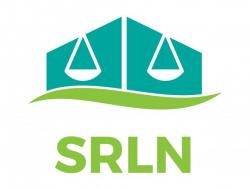
SRLN Brief: Memo on Model Code of Judicial Conduct 2.2 Revisions (SRLN 2012)
This memorandum lays out ways that states can develop state-specific comment language for their judicial codes. The memo reflects recent research, as well as recent state developments as of date of publishing. Judges Judicial Ethics United States SRLN Mem ...
Report: NCSC Judicial Conduct Reporter (Gray 2014)
This issue of the Judicial Conduct Reporter includes an indepth look at how states are addressing the ethics issues posed by self-represented litigants, including a review of case law and Judicial Code of Ethics 2.2. 2.2 Judges Reports Judicial Ethics Uni ...
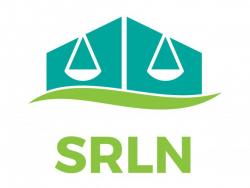
SRLN Brief: Procedural Fairness / Procedural Justice (SRLN 2015)
Research has shown that when defendants and litigants perceive the court process to be fair, they are more likely to comply with court orders and follow the law in the future—regardless of whether they “win” or “lose” their case. This is called procedural ...
Guide: Delaware’s Judicial Guidelines for Civil Hearings Involving Self-Represented Litigants (Delaware 2011)
The Delaware Supreme Court adopted these guidelines, effective May 11, 2011, designed to address concerns that Judicial Officers may have regarding balancing self-represented litigants’ perceptions of procedural fairness while maintaining neutrality in th ...
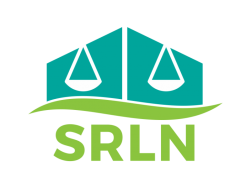
Weblinks: Language Access Bench Cards (Multiple States 2015)
As courts develop language access policies, many are developing bench card to standardize bench officer protocols. Examples of a few follow: Minnesota Bench Card for Courtroom Interpreting Minnesota Bench Card for Video Remote Interpreting in the Courtroo ...
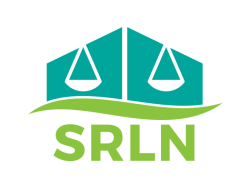
Webinar: Judicial Management of Self Represented Cases (SRLN 2006)
This webinar, which took place on June 14, 2006, discussed different techniques for managing cases involving self-represented litigants. California Judge Laurie Zelon and Minnesota Judge Daniel Mabley led this webinar. The webinar presentation can be down ...
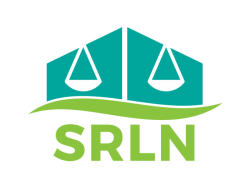
Article: Saving Courtroom Time: Techniques for Judges in Self-Represented Cases (Juhas, McKnight, Zelon, Zorza 2009, rev. 2015)
This article discusses 15 techniques that can increase courtroom efficiency when working with self-represented cases, and summarizes many of the practices suggested in the Judicial Curriculum (srln.org). Recommended Citation: Mark Juhas, Maureen McKnight, ...

Weblinks: Efficiencies and Innovation in California (Judicial Branch of California 2015)
On its webpage entitled, Efficiencies & Innovations (courts.ca.gov), the The California judicial branch, which is widely acknowledged as a national leader in developing and implementing programs that enhance access to justice, provides information and ...
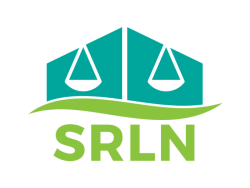
Conference: Harvard Judicial Leadership Conference (SRLN 2007)
Based on the research of the Self-Represented Litigation Network (SRLN), the resources below make up the original judicial curricula prepared by the National Center for State Courts (NCSC), the American Judicature Society, and the National Judicial Colleg ...
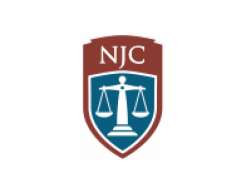
Course/Training: Best Practices in Handling Cases with Self-Represented Litigants (Reno 2015)
Course provided by The National Judicial College (NJC) to train legal professionals in best practices for managing cases involving self-represented litigants. Registration & course fee required. For more information, please visit NJC course page. ...